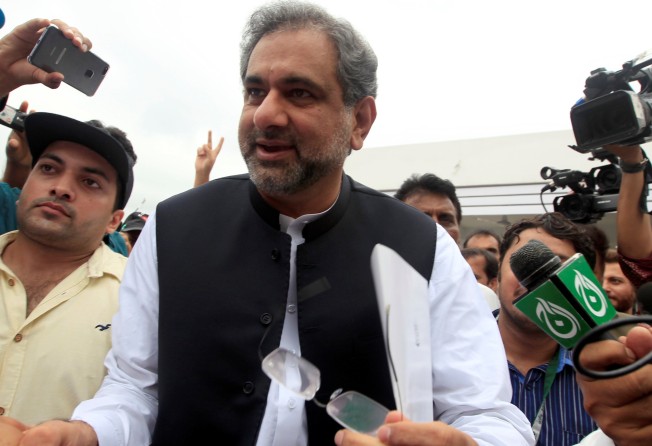With change of leader comes hope for real change in Pakistan
Political instability has been a hallmark of the nuclear-armed nation since its bloody separation from India; with a new prime minister installed, there is a chance for a change in direction

The best that can be said about the appointment of a new prime minister for Pakistan is that it brings hope. Former petroleum minister Shahid Khaqan Abbasi replaced Nawaz Sharif, who resigned last week after being disqualified from holding office by the Supreme Court for not declaring assets. The decision brought a return of political turmoil after four years of relative stability. Politicians and the powerful military have to manage differences to ensure the nuclear-armed nation does not head down a dangerous path.
Sharif’s third removal from the prime minister’s job followed a depressing trend for Pakistan’s democracy; no leader in the 70 years since independence from India has served a full five-year term. Court rulings and coups have gotten in the way, with the military always suspected of being involved. That is again the case with the latest decision, even though outwardly the disqualification of Sharif and his family from holding public office for alleged corruption would seem to show that the country’s rule of law is healthy. But the political infighting behind the case and the accusations that the security forces had a hand dampens any cause to rejoice and difficult times lie ahead through to elections next year.
Uncertainty has been the bane of Pakistan. Doubts over politics, the economy and security have long unnerved foreign investors, ensuring the poverty-ridden nation remains firmly in the financial doldrums. Whatever those challenges, though, China has confidence, Pakistan being an important element of its “Belt and Road Initiative” with US$50 billion being put into infrastructure projects. A Chinese foreign ministry spokesman said that the “all-weather friendship” between the nations had stood the test of time and the strategic partnership would not be affected by the change.
The bullish outlook does not take into account the rampant corruption in Pakistan among politicians and the military elite, the threat from religious extremists, connections with the Taliban in neighbouring Afghanistan and the army’s rejection of warmer relations with arch-rival India. Political chaos furthers the uncertainties for a nation that has missiles and nuclear weapons. A new leader at least offers a chance for change and a new direction.